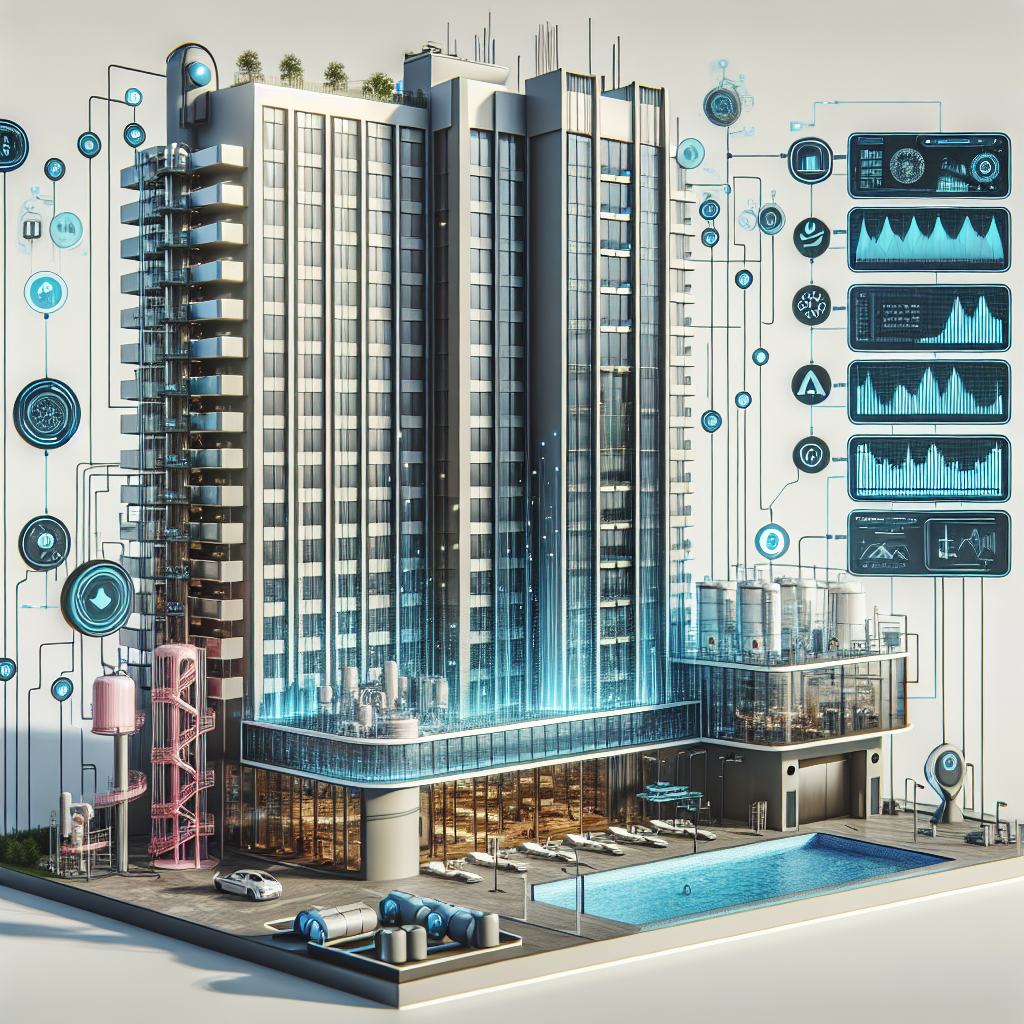AI Solutions for Predictive Maintenance of Hotel Equipment and Facilities
In the hospitality industry, ensuring that hotel equipment and facilities are well-maintained is crucial for providing a positive guest experience. However, traditional maintenance practices can be time-consuming and reactive, often leading to costly downtime and inconvenience for guests. This is where AI solutions for predictive maintenance come in, offering a more efficient and proactive approach to managing hotel assets.
What is Predictive Maintenance?
Predictive maintenance is a proactive maintenance strategy that uses data and analytics to predict when equipment is likely to fail, allowing maintenance teams to address issues before they occur. By monitoring the condition of equipment in real-time, predictive maintenance can help to maximize equipment uptime, reduce downtime, and extend the lifespan of assets.
AI Solutions for Predictive Maintenance
AI solutions leverage machine learning algorithms to analyze vast amounts of data collected from sensors and other sources to predict equipment failures. By analyzing patterns and trends in the data, AI algorithms can identify early warning signs of potential issues and provide recommendations for maintenance actions.
In the context of hotel equipment and facilities, AI solutions can be used to monitor a wide range of assets, including HVAC systems, elevators, kitchen equipment, and more. By continuously monitoring the performance of these assets, AI can help hotel maintenance teams identify issues before they escalate, saving time and money in the long run.
Benefits of AI Solutions for Predictive Maintenance in Hotels
There are several benefits to implementing AI solutions for predictive maintenance in hotels, including:
1. Reduced downtime: By predicting equipment failures before they occur, AI solutions can help to reduce downtime and minimize disruptions to hotel operations.
2. Cost savings: Proactively addressing maintenance issues can help to prevent costly repairs and extend the lifespan of equipment, ultimately saving money in the long run.
3. Improved guest experience: Well-maintained equipment and facilities are essential for providing a positive guest experience, and AI solutions can help to ensure that hotel assets are always in top condition.
4. Increased efficiency: AI solutions can help maintenance teams prioritize their workload and focus on the most critical issues, leading to increased efficiency and productivity.
5. Data-driven decision-making: By analyzing data from sensors and other sources, AI solutions provide valuable insights that can inform maintenance strategies and help to optimize asset performance.
FAQs
Q: How does AI predict equipment failures?
A: AI algorithms analyze data from sensors, equipment logs, and other sources to identify patterns and trends that indicate potential issues. By detecting anomalies in the data, AI can predict when equipment is likely to fail and provide recommendations for maintenance actions.
Q: What types of equipment can AI solutions monitor in hotels?
A: AI solutions can monitor a wide range of equipment and facilities in hotels, including HVAC systems, elevators, kitchen equipment, lighting systems, and more. By continuously monitoring the performance of these assets, AI can help maintenance teams identify issues before they escalate.
Q: How can hotels implement AI solutions for predictive maintenance?
A: Hotels can implement AI solutions for predictive maintenance by installing sensors on equipment, collecting data from these sensors, and using AI algorithms to analyze the data. By partnering with a technology provider that specializes in predictive maintenance, hotels can access the tools and expertise needed to implement AI solutions successfully.
Q: What are the key considerations when choosing an AI solution for predictive maintenance?
A: When choosing an AI solution for predictive maintenance, hotels should consider factors such as the scalability of the solution, the ability to integrate with existing systems, the level of support provided by the technology provider, and the cost of implementation. Hotels should also ensure that the AI solution complies with data privacy regulations and security standards to protect sensitive information.
In conclusion, AI solutions for predictive maintenance offer a more efficient and proactive approach to managing hotel equipment and facilities. By leveraging machine learning algorithms to analyze data and predict equipment failures, AI solutions can help hotels reduce downtime, save money, and improve the guest experience. With the right tools and expertise, hotels can successfully implement AI solutions for predictive maintenance and enjoy the benefits of optimized asset performance.

